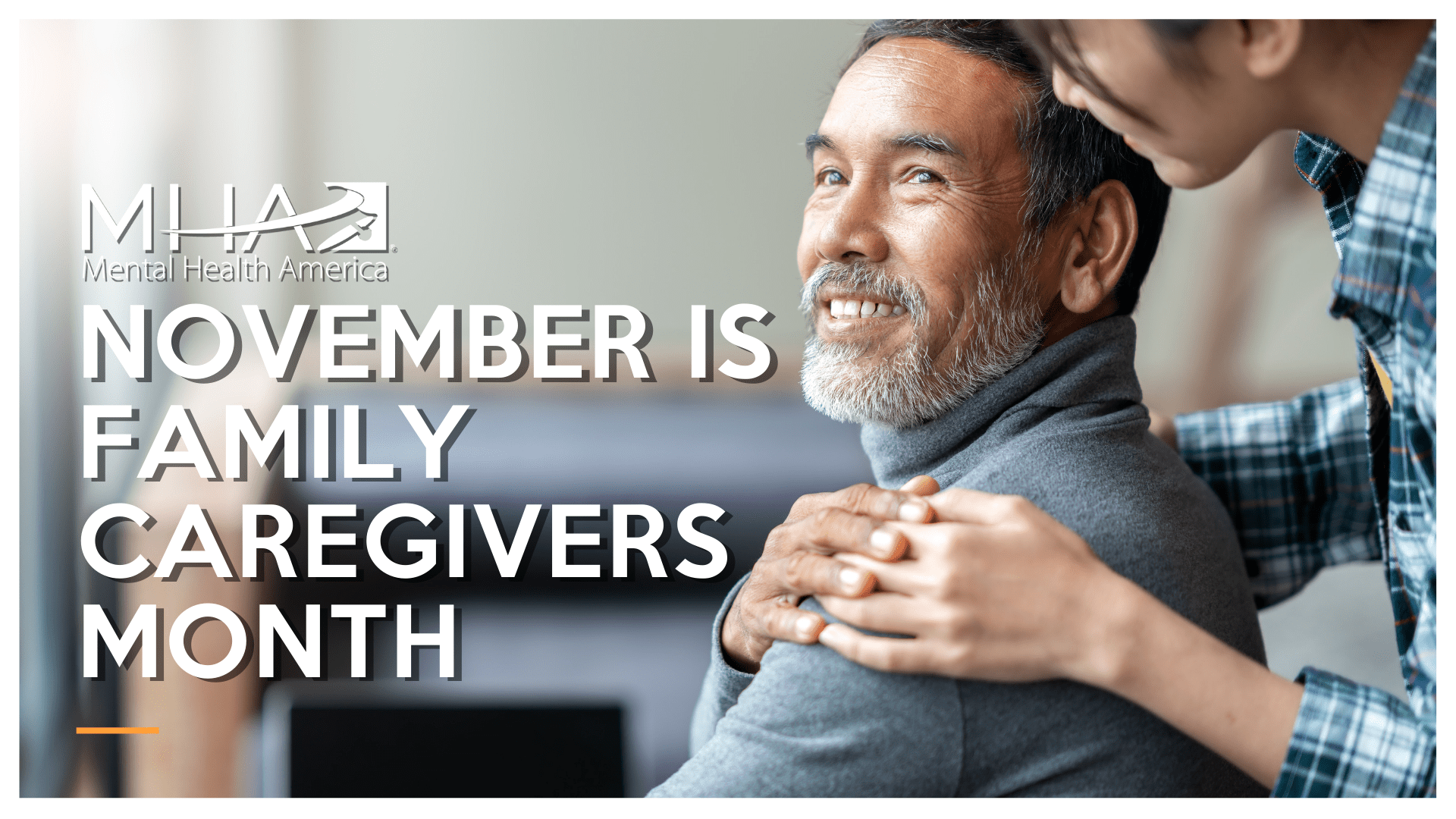Search Posts
Recent Posts
- Rhode Island Legislature Highlights Accomplishments for the 2025 Session June 25, 2025
- Sports in RI: Cody Tow, Volleyball Past, Present and Into His Future – John Cardullo June 25, 2025
- Need a Break? Time for Sour Grapes – Tim Jones June 25, 2025
- Rhode Island Weather Forecast for June 25, 2025 – Jack Donnelly June 25, 2025
- It is what it is: Commentary on 6.25.25 with Jen Brien June 25, 2025
Categories
Subscribe!
Thanks for subscribing! Please check your email for further instructions.

Tools for the caregiver…
Mental Health America (MHA) is proud to recognize November as National Family Caregivers Month – a time to celebrate the contributions of caregivers, provide them with tools that they need, and continue to advocate for individuals with mental illness.
There are over 53 million Americans who are unpaid caregivers to family, friends, and neighbors. Twenty-seven percent or nearly a third of adult caregivers are helping someone with a mental illness. Caregiving can often have a significant impact on the life of the caregiver in more ways than one. It can make maintaining your physical and mental health more difficult and may put a strain on work and social life.
As the COVID-19 pandemic continues, feelings of stress, worry, and isolation may have become familiar to all of us. Despite the current situation, caregiving-as-usual happens. Loved ones may have doctor appointments or there may be prescriptions to refill. Being a family caregiver is difficult in the best of circumstances. The stress and challenges of the role can have a huge impact on a family caregiver’s mental health, leading to more family caregivers experiencing depression, post-traumatic stress disorder, alcohol and drug addiction, and anxiety.
It’s important for caregivers to take care of their own mental health. Supporting caregivers with information and resources can help them maintain their mental health and better serve loved ones with mental illness.
If you are a caregiver struggling with your own mental health, visit mhascreening.org to take a free, anonymous, and confidential screen.
In recognition of National Family Caregivers Month, MHA released a new report, The Strain of Caregiving: How Caregiver Involvement Reduces Distress and Conflict, which explores whether family caregivers feel involved in the care of their loved ones if involvement has an effect on their levels of distress and conflict in providing care, and the hope they have for their loved one’s recovery. Click here to download the report.
Fast facts about caregivers
- 45% of caregivers for adults with mental illness are parents, 14% are adult children and 11% are spouses.
- The need for caregivers is expected to continue to grow as the US older adult population increases.
- Caregivers of people with mental illness are:
- 7% more likely to feel they have been discriminated against at work because of their role than caregivers of people with a physical illness
- 14% more likely to report high difficulty finding affordable services
- 11% more likely to say they didn’t receive training
- 21% more likely to feel high emotional stress (compared to caregivers of people with a physical condition)
Caregiver mental health resources
- Caregiving in BIPOC Communities
- 2019 Family Caregivers Toolkit
- Setting Goals for Recovery
- HIPAA: What Are A Caregiver’s Rights?
- New Treatment Options
- Talking To Treatment Providers
- Treatment Supports
- Crisis Planning Worksheet for Caregivers and Their Loved Ones
- Infographic: November is National Family Caregivers Month – Updated for 2020!
- Caregiving For A Person With A Mental Illness
- Family Caregiver Mental Health And COVID-19
- Taking Care of Someone is Too Stressful!
- Protective and Risk Factors for Toxic Stress
- Peer, Friend And Self Support In The COVID-19 Crisis: How To Provide Support For Ourselves And Others Through Times Of Fear And Isolation
Being in a Relationship with Someone Who Has a Mental Illness
Mental Illness And The Family: Recognizing Warning Signs And How To Cope
Mental Illness And The Family: Finding The Right Mental Health Care For You
Mental Illness And The Family: Is Hospitalization Necessary?
Resources For Immediate Response
Alternatives to calling the police in a crisis
My family member refuses to go to the hospital
What to do when they don’t want help
How can I access a loved one’s health care info?
My loved one has started moving strangely
How can I work with my loved one’s mental health care providers?
How can I help a loved one with a mental illness?
My loved one doesn’t want to take meds
How can I help a loved one with PTSD?
My loved one’s behavior is scaring me
Someone I care about is harming themselves
How can I help a loved one with bipolar?
How can I help a loved one with anxiety?
My loved one won’t talk to me about their mental health
7 tips for talking to a loved one about their mental health
How to help someone make decisions about their mental health
I need a break from caregiving!
